 Like icing on the cake, enrichment studies and activities have rounded out our education. Plus we've had a blast! The Lord has provided so many unique opportunities to learn and grow. I remember our children coming back from a wet walk with a homeschooling family from church. Now, I'm not a nature girl, so I was happy to provide this opportunity for my children, but I didn't want to be the provider. The idea of "wet walk" in Florida just said, "alligators, snakes, and yucky bugs" to me, but my children had a blast! And they learned a lot about our wetlands. One year, my teenage daughters and I signed up for a course at the local community college--a hip-hop class. This was a fun way to exercise and we counted it as PE. We have gone to seminars, workshops, and classes at our local craft/hobby shop. One year I took Shine to a Christian film festival. It was a bonding time, as well as very educational for the two of us. Things like art, music, cake decorating, debate, foreign language, dancing, swimming, clubs, choir, team sports, and homemaking add so many fun moments to our home school experience. Enrichment activities...
So what are some areas that would be fun for you to explore with your children? Art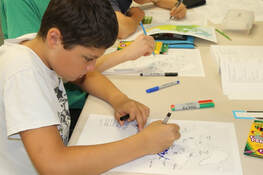 Painting, ceramics, collage, charcoals, and pastels are all ways to express creativity. Some children have a natural artistic flair. Others don't. Treat them all with enthusiasm. Cheer them on. Drawing is a great skill to start with . There are several "How-to-Draw" books that can teach the basics of sketching. A sketch pad and some nature walks are a great introduction to nature and art together. I created a tote of art supplies for my children and a cabinet with a shelf of different kinds of paper inside. If my children wanted to create, they could pull out what they needed and get to work. In middle and high school, there were some watercolor painting and ceramic courses at our homeschool co-op that we took advantage of to give more formal training.
0 Comments
 I started reading Agatha Christie cozy mystery novels in middle school. I loved to match wits with the detective and try to solve the case before Miss Jane Marple or Hercule Poirot did. My Mom loved cozy mysteries and she passed her enjoyment to me. One thing I didn't realize as a young teen was how great the writing was in some of these vintage novels. They quoted in French and Latin occasionally. They referred to Greek classics and history. Yes, Agatha Christie, Dorothy Sayers, G.K. Chesterton, and Ngaio Marsh are great authors who produced classic literature. Being a whodunit doesn't change that! But, it does make the reading more fun! I introduce my teens to Agatha Christie in middle school because she is such an amazing writer. For most of my children, this leads to reading more and more cozy mysteries. That helps me reach my goal of raising children who LOVE to read! I even created a high school English course for my kids that uses mostly cozy mysteries from the "Golden Age of Mysteries" (1920s to 1940s) and we spend the year writing our own whodunit novel. It's a blast to create a detective, plant clues or red herrings, and lead your reader on a chase to uncover the true murderer. Who knew school could be so fun? (You can check out Who Dun It here) Wait, I've digressed. Agatha Christie has written over 60 cozy mysteries that are fun to read and best of all, well-written from an educational and literature standpoint. So, if you like Agatha Christie, I bet your teen will, too. And if you've never read her, well, you will have to read one of her novels, too. Here are some of my favorite Agatha Christie novels. Two of these whodunits are solved by Miss Marple, one by Tommy & Tuppence, and the rest by Hercule Poirot. Enjoy! 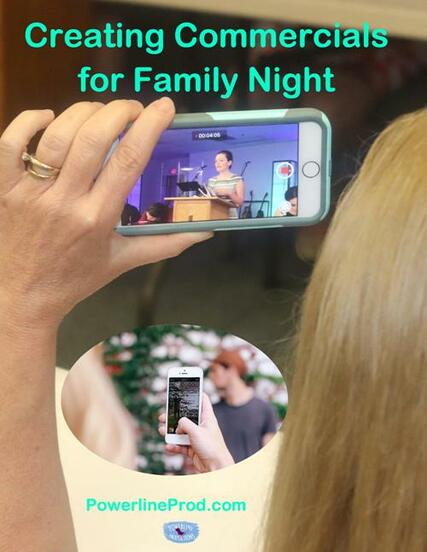 "Let's do something different tonight!" I suggested. Every family night we played a game or watched a movie both of which everyone enjoyed, but I wanted a change. All eyes were upon me. "Let's create commercials!" I smiled at my brood. "It will be so much fun!" Before anyone could complain, my husband divided the family into 2 groups. Each group would come up with a commercial and record it. Then we would watch each other's commercials together while we ate cookies and popcorn. With eyes on the popcorn, one group went upstairs to brainstorm and the other group stayed in the family room. The upstairs group decided to do a hair removal commercial. Use my mascara, they created a uni-brow on Jenny Rose, then 11.They also added massive amounts of "hair" to one leg. Jenny Rose would be the victim of peer cruelty because of excessive hair growth, but NADS hair removal would come to her rescue. The dialogue was priceless. The other group decided to do a cooking commercial in the kitchen with lots of slapstick comedy thrown in, including falling down and spilling things. The final scene would show everyone bandaged, but happily eating the delicious food cooked in the space age pots. Needless to say, the night was a huge success. We had a blast! And over the years we have watched these videos over and over. The Value of Family Night Algebra II can be an overwhelming challenge for high school students. What's a homeschool mom to do? My friend Laura, a math major in college, and I lead a co-op together. We have noticed over the years that so many moms come to us during Algebra II. Their teenager has breezed through math all his life and suddenly he hits a wall: Algebra II. He is discouraged and doesn’t want to do math anymore. Mom is throwing her hands up in despair. What do we say? When I speak on high school at homeschool conventions and workshops, at least one parent confides in me afterward that their “A” Math student is suddenly struggling to understand Algebra II. Why oh why is Algebra II so hard for so many high school students? My Experience With Algebra II Several of my children breezed merrily through Algebra II, but then we hit a snag. My daughter completed a whole year of Algebra II and felt lost. We changed curriculum, got a tutor, and she was able to finish up high school with pre-calculus. Why Does Algebra II Seem So Hard? In Algebra II, teens encounter the following:
Wait! I just lost some of you! Hold on. Let me sum this up, Algebra II introduces new things that are based on knowing, understanding, and being able to work with a variety of math from the past. It’s not only learning new things, but combining old things together in ways that students may have never experienced. Of there is something from past math courses for the struggling math student that they never quite got, especially working with decimals and fractions. In tutoring Algebra II, my friend Laura often has to go back and review mathematical concepts from 5th or 6th grade. Why Don’t They Remember?  One of the reasons I homeschool is to teach my children from a Christian worldview. What does it mean to homeschooling from a Christian Worldview? It means imparting life to my children, teaching them truth, and introducing them to the life-changing person of Jesus Christ. It means fulfilling the Great Commission by raising children who love Jesus with all their heart, soul, mind, and strength. A Christian worldview acknowledges that there is a God who is involved in the affairs of mankind, that the Bible is true and speaks to all of life. We know that people live in a fallen state, they are not basically good, they need to be rescued from their sin. We know that the Lord intervenes in people's lives in answer to prayer or to fulfill His divine purpose for a person or a nation. Here are the ways I educate my children from a Christian worldview. I give them a biblical foundation, inspiring them to fulfill the Creation Mandate and Great Commission, using curricula that is written from a Christian worldview, and surrendering to Jesus. Biblical Foundation A Christian worldview is based on the Word of God as it applies to all of life, including theology, philosophy, sociology, ethics, law, government, history, pyschology, economics, politics, family, child rearing, education. careers, medicine, health care, and relationships. We make the Bible the foundation for education in our home. We read, study, and memorize Scripture so that the Word is living in our children’s hearts and lives. We obey the Word of God. When it comes to conflict resolution, we follow Jesus’ plan in Matthew 18 to work in out between two and bring in a third person (parent) if it can’t be worked out. Our children honor us as parents and respect our authority so that it will go well with them according to Ephesians 6:1-4. The bottom line is that we use God’s Word as the measuring stick. If something doesn’t line up with Scripture, it is tossed out. The Bible is the standard of truth. Creation Mandate  I remember so many times staring a test in college, thinking, "I know this! Why can't I remember?" Years later, I was homeschooling my own children and they had their own struggles with remembering information. Whether you are a college student or teaching a preschooler, learning should be a joyful experience. Wait! You're not experiencing joy in your learning journey? It's hard to remember things. Or your not enjoying your homeschool adventure because it's hard to teach your children so they remember things. This is for all of those who struggle to remember what they learn and for all the teachers who teach them. Here are some tips to help you learn to remember. They work for all ages, even homeschool moms. "Look to your left," the professor barked. We all look to our left. "Now look to your right!" We all looked to our right. "Half of you will fail this class." My first day of Human Anatomy and Physiology my sophomore year of college was off to a dismal start. I was paralyzed for a month with fear of failure. If you want to remember or help your students remember, start by setting yourself or your students up for success. Set Up for Success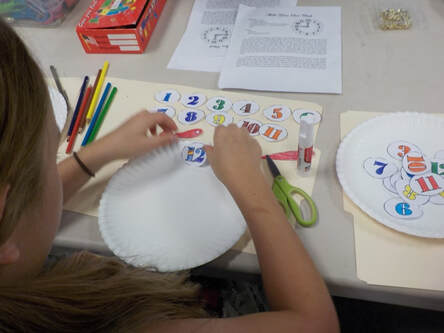 Set yourself or your student up for success by expressing confidence in your ability to learn whatever is before you! Nothing is impossible with God! We can do all things through Christ who gives us strength! Surround yourself with positive people who cheer you on and be a cheerleader to your students. Set yourself up for success by getting plenty of sleep, eating healthy foods, and exercising regularly. Good health makes learning easier. Setting yourself up for success also involves the environment. Choose a place to study with plenty of light and fairly quiet. Make sure you find a comfortable place to read and study. I like to read while I sit on a comfy couch or recliner. If I read in bed, I fall asleep. Light energizes me so if the weather is dark and cloudy, I turn on plenty of lights. What is your optimal environment? Your students'? When I am stressed out or frustrated, I have a hard time studying. If I'm trying to teach and feel stressed, my students are on edge, too. They cannot learn because they are too busy wondering what's wrong with me and what I am going to say. Sometimes when the children were little, I would become frustrated when they couldn't "get" something. I would have to take a break and get my joy back. One day I was trying every way possible to teach Julianna first, second, third. I was so angry that she couldn't understand all the creative ways I was trying to show her the concept. So we took a break. I said a quick prayer and immediately got an idea. We went into her bedroom where I lined all the stuffed animals up and pointed to each of the first three in line. "First, second, third," I said. She got it! Now, I thought all my other illustrations were more creative, but that's what clicked for her! Keep trying different methods until it clicks. When things get tense, take a break for five or ten minutes to calm down. Understanding Helps You Remember Zoos, Aquariums, Botanical Gardens, and Natural Museums allow children to see God's Creation up close, to learn more about all of His amazing creation. Children love to see things up close, especially animals! Our family has always enjoyed zoos and aquariums the most! There's something about see seals and monkeys play that always delights me! And I'm a grown-up! The sad thing is that so many of those zoos, aquariums, gardens, and museums teach evolution and don't believe that God sent a worldwide flood in the time of Noah. It should not surprise us that people who don't know the Lord don't want to glorify the Creator of all things. "Scoffers will come in the last days with scoffing, following their own sinful desires. 4 They will say, 'Where is the promise of his coming? For ever since the fathers fell asleep, all things are continuing as they were from the beginning of creation.' 5 For they deliberately overlook this fact, that the heavens existed long ago, and the earth was formed out of water and through water by the word of God, 6 and that by means of these the world that then existed was deluged with water and perished. 7 But by the same word the heavens and earth that now exist are stored up for fire, being kept until the day of judgment and destruction of the ungodly" (II Peter 3:2-7 ESV). Just because the world is misguided, doesn't stop us from teaching truth to our little ones. I love to show my children the truths about our Creator in the Bible. When I see a gorgeous sunset or an adorable animal, I remind whoever is around that we serve an amazing Creator! I want my children to look around in wonder at the world and all it contains; then, pause and praise God! So, how can we visit these fun places and teach our children the truth?  The most important thing I can do to get my school year off to a good start is to dedicate the coming school year to the Lord. Seek His Kingdom First Jesus promised that if I seek first His Kingdom, then everything I truly need will be added to me. No good thing will the Lord withhold from me! We like to gather as a family and pray for the year ahead. That includes everyone. Dad, Mom, teens, and littles all pray. This is not a Hallmark moment; it is a battle in the heavenly realms. Prayer Philippians 4 reminds us that instead of worrying, we can present all our requests to God. He will not only answer, but guard our minds and hearts with His peace. You see, Ephesians 6 reveals to us that prayer is a weapon of warfare for the Christian. God answers prayer! Dedicate the coming school year to the Lord, but don’t stop there. Include Jesus in every school day. Bring every problem to Him throughout the year, from difficulty memorizing multiplication tables to constant bickering between siblings. Surrender to Succeed  Worldview is the set of ideas, values, and presuppositions through which you view the world. What? Well, it’s like putting on a pair of sunglasses that color everything you see. What kind of sunglasses do you wear? Everyone in the world wears a pair of sunglasses through which they view life, people, and ideas. Many people collect little pieces of their worldview over time through parents, school, movies, and friends. Biblical Worldview A Christian worldview is based on the Bible. The Bible reveals God’s heart and thoughts—the way He views the world. A wise person will try to line up his worldview with what the Bible has to say. Sometimes Christians don’t realize that their worldview is based more on secular ideas and morality instead of the Bible. The Bible speaks to all of life. The Bible speaks to every subject. Theology/ Who is God? What do you believe about God? Let me share with you what the Bible has to say. God Is. He exists. He has always existed. God is One and exists in Three Persons: Father, Son, and Holy Spirit. God created everything that exists, seen and unseen, out of nothing. He spoke and it came to be. He is personally involved in His creation. His creation is accountable to Him. God is Holy. God is Love. Life is more than what we can see in the natural world. There is a supernatural realm that is unseen. Angels and demons wage war in that supernatural realm. Christians are seated with Christ in this heavenly realm. We please God with faith. We access grace through faith. Faith is a gift from God. Ethics/Morality  "It's just because you think Robin Hood can do no wrong!" Everyone laughed. We were teasing Victoria who was hotly defending Robin Hood's behavior in The Merry Adventures of Robin Hood. In answer that Robin Hood was a thief, Victoria defending him saying, "He was returned money the government stole from people to the people who were stolen from." There was more laughter and we started discussing some of the other characters. We were enjoying our bimonthly book club, as part of our American Literature and Research class. Our book clubs had included lots of laughter and some emotional moments where tangents took us to emotional issues of our lives or what was going on in the world around us. We compared characters to people we knew, talked about characters we loved, and how we wanted to the ending to be different. As we talk about what we liked and didn't like, plot, tone, mood, setting, worldview, and theme, we found ourselves digging deeper into books than we ever had before. There was just something about talking together that often led to deep analysis. We always had fun together even if we didn't like the book a lot. Book clubs, after all, are friendship builders. Best of all, book clubs actually motivated students to hurry and finish the book so we could all discuss it together. I embraced book clubs over book reports because I wanted to build an enjoyable lifetime habit in my children's lives. I wanted them to read because reading is fun, interesting, entertaining, and a privilege. How Book Clubs Work Homeschooling is an all-encompassing adventure. It takes over your whole life, especially if you choose to pursue a lifestyle of learning instead of trying to bring traditional school-style learning into the home. We like living books, hands-on-fun, and mentoring our children in the context of close relationships. Sometimes, Homeschool Moms can wonder what on earth they were thinking when they took the homeschool plunge. Not because it isn't wonderful? And fun! And exciting! But, there is that nagging fear! "Am I doing everything right? Are my children missing something they need in their education? Am I teaching effectively?" When I start to nervous about those things, I have to stop and ask myself, "Who is driving our homeschool bus?" Is it me? Or is it the Lord? You see, I can do an okay job educating my children, but if I want excellence in my home school, I need the Master Teacher to take charge. He is perfect in all His ways and knows everything about everything! Best of all, He wants me to surrender to Him and allow Him to take control of my heart, life, family, home, children, and home school. Once you surrender to Him, the pressure is off. The focus becomes honoring Jesus, praying, digging into His Word, and letting Him lead. Homeschooling becomes an adventure with Jesus! And so today, I ask you: Who is driving your homeschool bus? If you are driving, you might want to surrender to Jesus. He is an amazing driver! Jesus promises to lead us beside still waters, to nourish our souls, to give us wisdom, to lift our burdens, to fill our heart with joy, to answer our prayers, and work in us to will and to act according to His good purpose. He will never leave us. And don't forget: Jesus said in John 15 that apart from Him, we can do nothing.  We are up and running. It’s a brand-new year. So much to be excited about. It’s hard to believe that soon this school year will just be a memory. My Missing Photos I have been homeschooling since 1991 and as I look back at our photo albums—yes, I used to get photos printed and put them in albums before digital—I find one set of photos missing. The photos of my children reading, working on a math problem, reading to a sibling, or doing chores. I have lots of photos of birthdays, holidays, field trips, and special days, but I wish I had more photos of ordinary school days. Maybe you do take lots of photos of school and chores, posting them on Instagram for the world to see. Good for you! You will treasure those memories one day. Storing My Photos As you go through the school year, don’t forget to snap photos and save mementos. Maybe you don’t scrapbook or print photos and put them in leather albums, but you can label and save them in folders. I don’t print up photos much anymore, unless I am framing them, but I do label photos with the date and list the people in the photo. Sometimes I just use initials like this: “Christmas Day 2016 JR JA Dad Jim KB Rusty.” My photos are organized on my computer, too. There is one folder for every year: 2000, 2001, 2002, etc. Then, I also have all twelve months in separate folders: Jan 2015, Feb 2015, March 2015, etc. Inside these folders are all kinds of folders: Beach 6 6 15, Road Rally 6 17 15, Mom’s BD 6 2 15, etc. These folders are descriptive, so I can easily remember the day by looking at the title. Finding Photos  There was a time when learning math involved memorization. Today we tend to shy away from memorization or never get around to it. I’m here to tell you that, even with calculators and computers, we still need to memorize certain facts in math. Multiplication Facts This is always the number one thing math teachers tell students to memorize. It is also the number one thing that math students claim they can use their calculator for instead of memorizing them. Here’s the truth. Calculators are slower than your brain. On any given day it will take longer to enter 7x6= into a calculator than it will for you to remember that the answer is 42. This may seem like a sacrifice your students are willing to make but let’s put it into perspective. Most good math programs have students doing 30 or more problems per day. If every problem takes longer because of typing into a calculator math class can get extended much longer than it needs to be. Further, when students take college entrance exams, they are timed. Test takers need every single second they can get. Human error is another problem with calculators. I call it “fat fingers”. It’s amazing how easy it is to hit the wrong key on your calculator. If you are not carefully watching every digit entered, you won’t even know you made the mistake. If you are watching every digit, you’re taking a lot more time. Being able to quickly do your multiplication portion of math problems will improve retention of concepts. If students are fumbling through punching multiplication factors into a calculator, they are being distracted from the concept they are learning. This distraction makes it more difficult to learn and remember. There are many different methods for memorizing multiplication facts. The simplest way to do it is to just start writing them. Flashcards and memorization charts are also very useful. I took an idea from my mother’s school days, back in the 1940’s and created a great little mini-book called Multiplication Memorization Circles. If you get our newsletter, this is the March newsletter Freebie. (You can sign up for our newsletter here) Memorizing multiplication facts can be started as early as second to third grade. If your students are older and haven’t done it yet, do it now. It’s never too late. Making Ten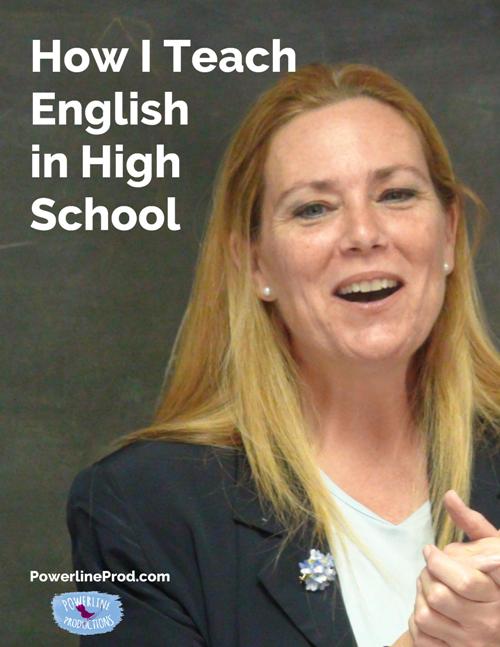 People often ask me how I teach English in high school. Maybe it's because three of my five children pursued writing careers after graduation and all five of my children love to read. First of all, I don't teach grammar or spelling in high school. Instead I use Daily Grams so my high school students won't forget what they already know. They just do one page a week or so throughout high school. It only takes us one copy of the workbook for all four years. Oh, speaking of four years, I teach five years of high school English, so one of the five courses is taught in eighth grade. I don't teach anything in any particular order in high school. Often I had a senior taking the same course as a sophomore or freshman. It's more fun to learn together. In each course, I teach specific skills. We also read classic literature, essays, and short stories. Each time I teach these courses, they are a little different because they target specific needs and interests of the one or two of my teens taking the course. Essays, Speeches, Thesis Statements Tough times hit every family! For most families, there never seems to be enough money to cover all the unexpected expenses that arise. When hard times come, it makes it even harder to make ends meet and deal with surprise financial blows. As I have taught economics in high school and counseling couples having financial difficulties, I have come to this conclusion: the economic cycle affects families, too. Every family I know has times where income is growing moving into prosperity, as well as times of financial trials where income recesses. If you see this cycle of growth--prosperity--decline--recession--recovery. Think about it. Sam loses his job and times are really tough for awhile, even after God provides a new one. It takes about six months for the family to get back on their feet. Can we make it through hard times and come out stronger in the end? Having had the privilege of many years of financial hard times some short and some extending for years, our family has learned a few lessons along the way that make life easier. Would you like some financial wisdom for hard times? Use Secret Weapons |
AuthorsMeredith Curtis Archives
February 2020
Categories
All
|
Powerline Productions
- Home
-
Books
-
Curriculum
- HIS Story of the 20th Century >
-
High School Courses
>
- Economics, Finances, & Business >
- American Literature & Research
- British Literature
- Who-Dun-It Murder Mystery
- Foundations of Western Literature
- Communication 101: Essays & Speeches
- Old Testament Survey
- Worldview: Understand the Times Workbook
- Drama
- Career Choices & the College Decision
- Real Men 101
- Real Men 102
- Real Men 103: Leadership
- God's Girls 101
- God's Girls 103
- God's Girls 104: Motherhood
- God's Girls 105: Homemaking
- Travel God's World Geography >
- Government
- Unit Studies >
- Teach History the Fun Way >
- Families Learn Together American History >
- STEM Notebooking Pages
- Middle School Courses >
-
Bible
- Cozy Mysteries
- Blog
Photos from cloudzilla, Fil.Al, vaniljapulla, m01229, Ian D. Keating, (Imagine) 2.0, Theo Crazzolara, RomitaGirl67, RomitaGirl67, Gonmi, moonlightbulb, RomitaGirl67, Amydeanne, Salva Martinez, Graham Ó Síodhacháin, Ruth and Dave, infomatique, MsSaraKelly, moonrat42, {Guerrilla Futures | Jason Tester}, Monica's Dad, kennethkonica, o palsson, Tourismusregion Katschberg, wuestenigel, COD Newsroom, ANBerlin, Henri Photography, Tourismusregion Katschberg, Corey Ann, *_*, diannlroy.com, Theo Crazzolara, DaPuglet, terren in Virginia, George M. Groutas, Bunches and Bits {Karina}, Anders Ruff Custom Designs, ¥§•ªˆ¨ˇ© LOVE © ˇ¨ˆª•§¥, srqpix, inkknife_2000 (8 million views +), judy dean, ANBerlin, Phil Roeder, Base Camp Baker, Anders Ruff Custom Designs

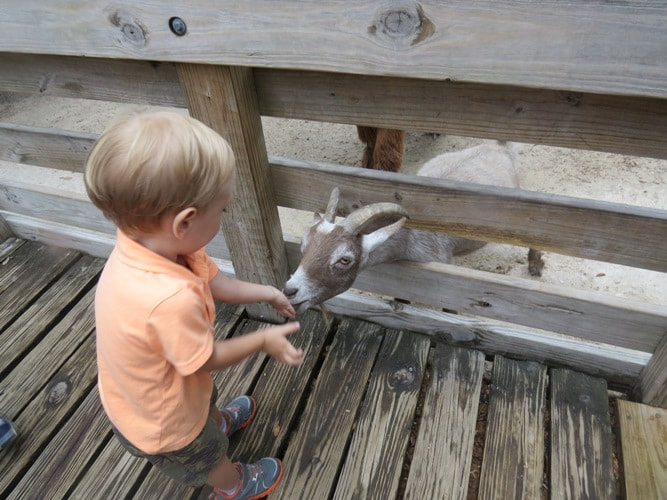
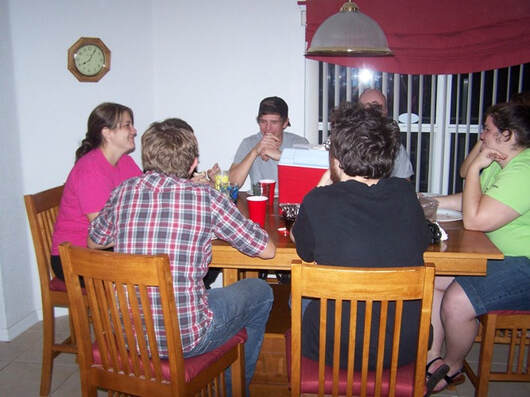


 RSS Feed
RSS Feed







